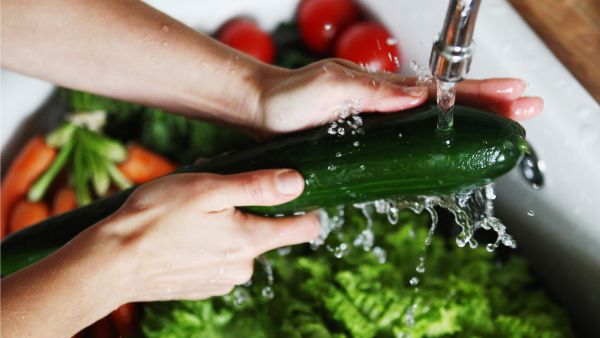Health Ministry Spokesman Dr. Khalid Al-Mirghalani said the warning is being issued as a preventive measure against the deadly food-borne bacteria that has infected over 1,600 people in 11 European nations, including Germany and Spain. So far, it has already claimed 17 lives in Germany and elsewhere, raising fears about a never-seen-before outbreak situation. “There is no need for the people to panic about the disease,” he noted. Al-Mirghalani explained that once the vegetables are washed, one must wash one's hands to ensure that there are no germs on one's hands. He added that those who come from abroad, especially from European countries and Germany, should go to the nearest doctor if they suffer from bloody diarrhea. He also said that those who travel to Europe from the Kingdom should adopt extra preventive measures. “Anyone who shows the basic symptoms should report to the doctors without any delay to prevent complications,” he added, pointing out that abdominal pain and diarrhea are the immediate signs of the disease.
Since the beginning of May, the spokesman said, the Health Ministry has been monitoring the movement of this disease in Europe. “The first 74 cases detected in northern Germany were due to consumption of tomatoes, cucumbers and leafy vegetables,” he noted. He pointed out that the haemolytic uraemic syndrome with serious complications infects the intestine and produces toxins and eventually leads to kidney failure and anemia. “The disease resists antibiotics, which leads patients to the Intensive Care Unit. The incubation period of the disease is two to 10 days,” he said. “An estimated 502 cases of haemolytic uraemic syndrome (HUS) and 1,122 cases of EHEC (enterohemorrhagic E. coli) have been reported — 1,624 in total,” World Health Organization (WHO) said Friday.
Meanwhile, Ibrahim Al-Oqaili, head of the Customs Clearance Committee at the Jeddah Chamber of Commerce and Industry said containers of frozen and fresh vegetables have been cleared at Jeddah Islamic Port and King Abdulaziz International Airport (KAIA) as usual without extra checking. “There is no change in clearance procedures and the authorities have not employed additional staff at the entry points,” said Al-Oqaili when asked about precautionary measures taken to prevent goods contaminated by E. coli from entering the Kingdom. Officials at the Agriculture Ministry’s office at KAIA refused to comment on the measures taken to clear agricultural products, especially those arriving from Western countries.
“We have clear instructions not to make any press comments,” said an official at the quarantine department. Saleh Al-Tuwaijri, spokesman of the Agriculture Ministry’s office in Jeddah, said he has not received any information regarding precautionary measures taken against the bacteria. “We are only concerned with clearing fresh vegetables.
Frozen vegetables do not come under our authority. Tests are conducted at the Commerce Ministry’s laboratories.” Arab News contacted a number of importers who said the presence of many monitoring authorities such as the Ministry of Agriculture, the Saudi Food and Drug Authority, Commerce and Industry Ministry and Customs was delaying clearance of goods. “This also give them an opportunity to blame one another for the delay,” one businessman said.








